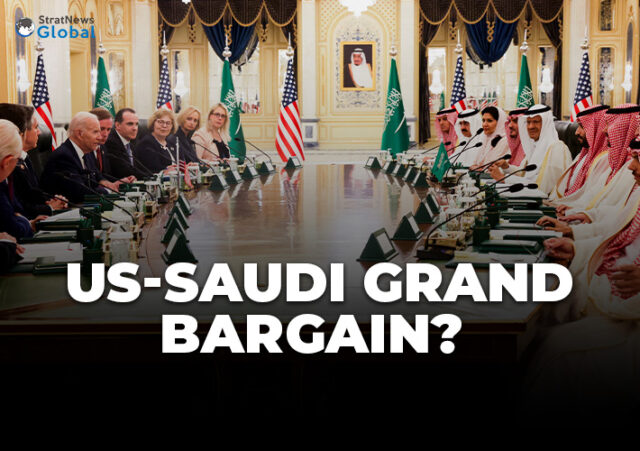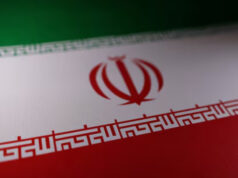The Biden administration and Saudi Arabia are nearing the completion of a significant agreement that encompasses U.S. security guarantees and civilian nuclear assistance. This development comes amidst ongoing efforts to establish a “grand bargain” in the Middle East, which includes normalising relations between Saudi Arabia and Israel—a goal that remains unachieved as of now.
A working draft of the proposal aims to reinvigorate a U.S.-led initiative to stabilise the region, which faced setbacks due to recent conflicts, including Hamas’ attack on Israel on October 7 and the subsequent war in Gaza. The proposed agreement appears to be ambitious, with numerous challenges ahead, particularly given the uncertain outcomes of the ongoing conflict in Gaza.
In the interim, U.S. and Saudi negotiators have focused on a bilateral security arrangement, which would form part of a broader package potentially requiring concessions from Israeli Prime Minister Benjamin Netanyahu to establish formal ties with Riyadh. According to U.S. State Department spokesperson Matthew Miller, the U.S.-Saudi portion of the agreement is close to being finalised, with expectations of resolving details soon.
The security deal likely includes formal U.S. commitments to defend Saudi Arabia, enhanced access to advanced U.S. weaponry for the kingdom, and a shift in Saudi military procurement away from China. This part of the agreement also proposes cooperation in emerging technologies, including artificial intelligence.
The broader agreement, which Netanyahu has yet to endorse, may necessitate Israel to deescalate the Gaza conflict and take steps toward recognizing Palestinian statehood—objectives Netanyahu has historically resisted. Despite these hurdles, U.S. officials hope Netanyahu will seize the opportunity to normalise relations with Saudi Arabia, which holds significant religious influence as the guardian of Islam’s holiest sites.
This agreement aims to strengthen U.S.-Saudi ties and counter China’s growing influence in the region. It also seeks to bolster Israel’s security posture against Iran. However, significant domestic and international challenges remain, including potential opposition in the U.S. Congress, where concerns over Saudi Arabia’s human rights record and regional activities persist.
With Inputs From Reuters





